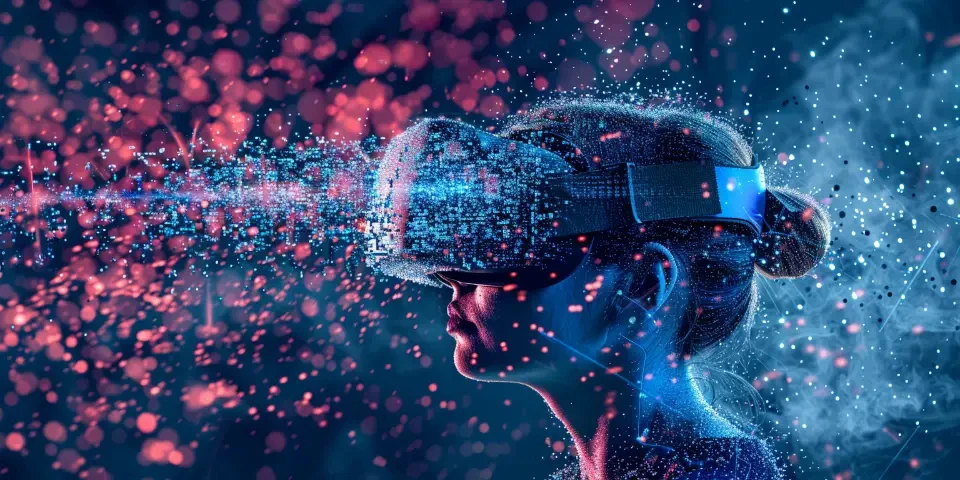AI Synthesizers The Perfect Companion for Songwriters Seeking Inspiration
Artificial Intelligence (AI) has permeated various fields, revolutionizing the way we live, work, and create. In the realm of music, AI synthesizers have emerged as the perfect companion for songwriters seeking inspiration. These innovative tools offer a plethora of creative possibilities, allowing musicians to explore new sounds, enhance their compositions, and break through creative barriers. Let's delve into the world of AI synthesizers and discover how they are transforming the landscape of music creation.
1. Limitless Sound Exploration:
One of the most remarkable features of AI synthesizers is their ability to generate a virtually limitless range of sounds. Traditional synthesizers were restricted by the pre-set soundbanks and capabilities of the hardware. However, AI-powered synthesizers can analyze vast databases of sounds, extract patterns, and create unique and never-before-heard tones. With these tools, songwriters can break free from the constraints of traditional instruments and push the boundaries of their compositions.

One noteworthy AI synthesizer is OpenAI's GPT-3, which generates music based on textual prompts. By simply describing the desired mood or style, GPT-3 can compose melodies, harmonies, and even lyrics. This opens up a world of possibilities for songwriters, as they can now collaborate with AI to co-create music that resonates with their vision.
2. Intelligent Collaboration:
AI synthesizers serve as intelligent collaborators, augmenting the creative process of songwriters. These tools can analyze existing compositions, understand musical structures, and generate complementary elements. They can suggest chords, melodies, or variations that enrich a songwriter's work.
Magenta Studio, developed by Google, is a prime example of an AI-powered tool that facilitates intelligent collaboration. It assists songwriters by providing a variety of features, such as melody generation, chord suggestions, and even the ability to harmonize a given melody. By working hand-in-hand with AI, songwriters can unlock new levels of productivity and explore uncharted musical territories.
3. Overcoming Creative Blocks:
Writer's block is a common challenge for songwriters, but with AI synthesizers, this obstacle can be overcome. These tools offer an extensive library of pre-generated musical ideas and motifs that can rekindle inspiration. By exploring different styles, genres, or combinations, songwriters can find new directions for their compositions.
IBM's Watson Beat is an AI-backed platform that helps songwriters overcome creative blocks. It analyzes existing tracks, identifies key elements, and generates musical ideas that align with a songwriter's style. This assists in jump-starting the creative process, enabling songwriters to overcome stagnation and continue crafting their musical masterpiece.
4. Personalized Music Generation:
AI synthesizers empower songwriters to create personalized music tailored to specific requirements. These tools can adapt their output based on user preferences, styles, or even emotional cues. By fine-tuning parameters or providing feedback, songwriters can shape the AI's composition to match their unique artistic vision.
Sony's Flow Machines is a cutting-edge AI synthesizer that enables personalized music generation. It uses deep learning algorithms to analyze vast musical databases and then generates compositions that are influenced by a user's input. This customization ensures that songwriters can create music that aligns with their artistic identity.
5. Accessibility and Affordability:
In the past, aspiring songwriters often faced barriers due to the cost and complexity of traditional musical instruments. However, AI synthesizers have democratized music creation by offering affordable and accessible alternatives. These tools eliminate the need for expensive hardware or extensive musical knowledge, enabling anyone to dive into the world of music composition.
A popular AI synthesizer that encompasses accessibility and affordability is BandLab. This cloud-based platform provides an intuitive interface, pre-loaded loops, and AI-powered suggestions for song arrangement. It allows songwriters to quickly and easily create full tracks without the need for complex equipment or a deep understanding of music theory.
6. Enhancing Live Performances:
AI synthesizers not only aid in the composition process but also enhance live performances. These tools can generate real-time accompaniments, provide backing tracks, or even adjust sound parameters based on a performer's actions.
Roli's Lumi Keys, an AI-powered keyboard, exemplifies how AI enhances live performances. It incorporates machine learning algorithms that enable adaptive accompaniment, responding to a performer's playing style and dynamically generating harmonies or additional layers. AI synthesizers like Lumi Keys elevate live performances, creating a more immersive and captivating experience for both musicians and audiences.
Frequently Asked Questions:
Q: Can AI synthesizers replace human creativity in music composition?
A: AI synthesizers serve as a powerful tool for augmenting human creativity, but they cannot entirely replace the nuances and depth of human expression. They excel at generating ideas, exploring new sounds, and overcoming creative blocks, but the final artistic touch and intent come from the songwriter.
Q: Are AI synthesizers only suitable for electronic music genres?
A: While AI synthesizers have gained popularity in electronic music due to their ability to generate unique and experimental sounds, they are not limited to any specific genre. These tools can adapt to different musical styles, making them suitable for a wide range of genres, including pop, rock, jazz, and classical.
Q: Do I need technical expertise to use AI synthesizers?
A: Most AI synthesizers are designed with user-friendly interfaces, allowing songwriters of all skill levels to explore and create music. While some platforms may offer advanced features that require technical knowledge, many tools prioritize simplicity and accessibility.
References:
1. OpenAI's GPT-3: https://openai.com/research/gpt-3/ 2. Magenta Studio: https://magenta.tensorflow.org/studio 3. IBM's Watson Beat: https://www.ibm.com/watson/services/watson-beat/ 4. Sony's Flow Machines: https://www.flow-machines.com/ 5. BandLab: https://www.bandlab.com/ 6. Roli's Lumi Keys: https://roli.com/products/studios/player-lumo-keys
Explore your companion in WeMate